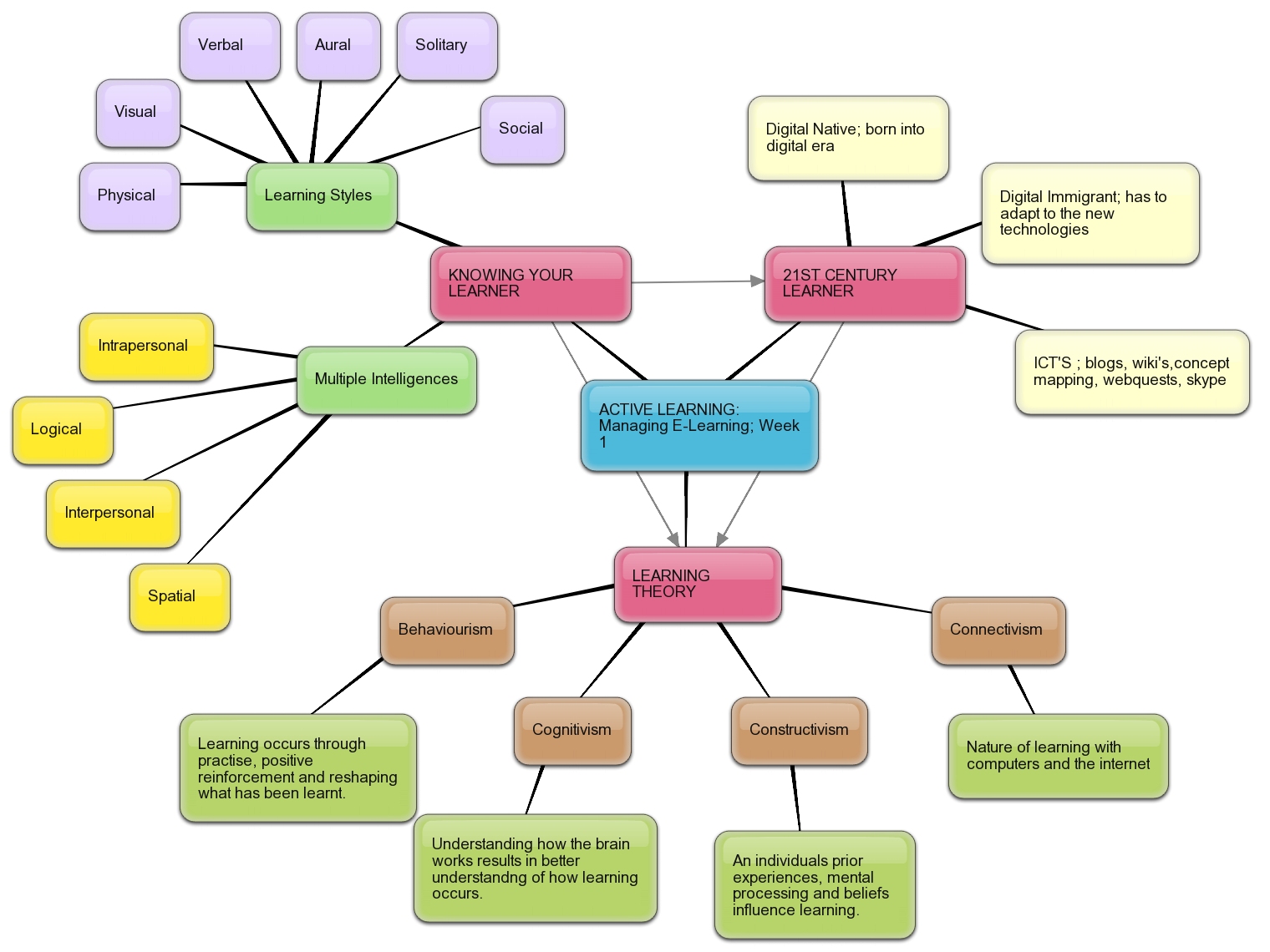Navigating the Landscape of Concept Mapping Careers: A Comprehensive Guide
Related Articles: Navigating the Landscape of Concept Mapping Careers: A Comprehensive Guide
Introduction
With great pleasure, we will explore the intriguing topic related to Navigating the Landscape of Concept Mapping Careers: A Comprehensive Guide. Let’s weave interesting information and offer fresh perspectives to the readers.
Table of Content
Navigating the Landscape of Concept Mapping Careers: A Comprehensive Guide

The world of work is constantly evolving, driven by technological advancements and shifts in societal needs. In this dynamic environment, individuals who possess the ability to effectively visualize, organize, and communicate complex information are highly sought after. This is where concept mapping, a powerful tool for knowledge representation and comprehension, comes into play.
Concept mapping, at its core, is a visual representation of information that utilizes nodes (concepts) and links (relationships) to create a structured network. It is a versatile technique that transcends disciplinary boundaries, finding applications in fields ranging from education and business to research and healthcare. As the demand for professionals skilled in visualizing and organizing information grows, so too do the career opportunities associated with concept mapping.
Understanding the Importance of Concept Mapping Careers
Concept mapping’s significance in the contemporary workplace stems from its ability to address several critical needs:
- Enhanced Communication and Collaboration: Concept maps provide a common language for teams to understand and share complex ideas, fostering collaboration and alignment.
- Improved Problem-Solving and Decision-Making: By visually representing problems and their solutions, concept maps enable teams to analyze situations more comprehensively and make informed decisions.
- Effective Knowledge Management and Retention: Concept maps facilitate the organization and retention of knowledge, enabling individuals and teams to access and apply information efficiently.
- Increased Creativity and Innovation: Concept maps encourage divergent thinking, fostering the generation of new ideas and solutions.
- Enhanced Learning and Understanding: By visually connecting concepts, concept maps make information more accessible and engaging, promoting deeper understanding and retention.
Exploring Concept Mapping Careers: A Spectrum of Opportunities
The application of concept mapping extends across various industries and roles, opening doors to a diverse range of career paths. Here are some prominent examples:
1. Education and Training:
- Curriculum Designers: Concept maps are crucial for designing and structuring educational materials, ensuring a logical flow of information and effective learning outcomes.
- Teachers and Educators: Concept mapping can enhance classroom instruction, promote student engagement, and facilitate knowledge acquisition.
- Training Developers: Concept maps are invaluable for creating engaging and effective training programs, particularly for complex topics.
2. Business and Management:
- Business Analysts: Concept maps are essential for analyzing business processes, identifying areas for improvement, and developing strategies for growth.
- Project Managers: Concept maps aid in project planning, risk assessment, and communication, facilitating efficient project execution.
- Marketing and Sales Professionals: Concept maps can be used to develop marketing strategies, analyze customer segments, and visualize sales funnels.
3. Research and Development:
- Researchers: Concept maps are instrumental in organizing research findings, generating hypotheses, and communicating complex research results.
- Data Analysts: Concept mapping assists in data visualization and analysis, enabling the identification of patterns and insights.
- Knowledge Managers: Concept maps play a critical role in knowledge organization, sharing, and dissemination, facilitating knowledge transfer within organizations.
4. Healthcare and Social Sciences:
- Healthcare Professionals: Concept maps can be used to understand patient conditions, develop treatment plans, and communicate effectively with patients.
- Social Workers: Concept mapping can aid in case management, understanding complex social issues, and developing intervention strategies.
- Psychologists: Concept maps are useful in visualizing psychological theories, understanding client narratives, and developing therapeutic interventions.
5. Software Development and Technology:
- Software Developers: Concept mapping can be used to design software architecture, plan development processes, and document code.
- User Experience (UX) Designers: Concept maps are valuable for understanding user needs, designing user interfaces, and mapping user journeys.
- Data Scientists: Concept maps can be used to visualize data relationships, identify patterns, and communicate complex data findings.
Building a Successful Concept Mapping Career: Essential Skills and Qualifications
While the specific skills and qualifications may vary depending on the chosen career path, certain fundamental attributes are essential for success in concept mapping roles:
- Strong Visual Thinking Skills: The ability to translate complex information into clear and concise visual representations is paramount.
- Excellent Communication Skills: Effective communication is crucial for explaining complex concepts, collaborating with colleagues, and presenting findings.
- Analytical and Critical Thinking Skills: The ability to analyze information, identify key relationships, and draw logical conclusions is essential.
- Proficiency in Concept Mapping Software: Familiarity with popular concept mapping tools, such as XMind, MindManager, and FreeMind, is highly advantageous.
- Knowledge of Relevant Industries: Understanding the specific needs and challenges of the target industry is crucial for applying concept mapping effectively.
FAQs about Concept Mapping Careers
1. What educational background is required for a concept mapping career?
While a specific degree is not always mandatory, a background in fields like education, psychology, business, or information technology can provide a solid foundation.
2. Are there specific certifications for concept mapping professionals?
While there are no universally recognized certifications, specialized training programs and workshops can enhance your skills and knowledge in concept mapping.
3. What are the salary expectations for concept mapping careers?
Salaries can vary significantly based on experience, industry, and location. However, individuals with expertise in concept mapping often command competitive salaries, especially in high-demand fields.
4. What are the growth prospects for concept mapping careers?
The demand for professionals skilled in concept mapping is expected to grow in the coming years as organizations increasingly recognize the value of visual communication and knowledge organization.
5. How can I gain experience in concept mapping?
You can gain experience by:
- Taking online courses or workshops: Numerous online platforms offer courses and workshops in concept mapping.
- Volunteering or interning: Seek opportunities to apply your skills in organizations that utilize concept mapping.
- Developing personal projects: Create concept maps for personal interests or projects to build your portfolio.
Tips for Success in Concept Mapping Careers
- Stay Updated on Emerging Trends: Keep abreast of advancements in concept mapping software and techniques.
- Network with Other Professionals: Connect with other concept mapping professionals to exchange ideas and learn from their experiences.
- Build a Strong Portfolio: Showcase your work through a portfolio that demonstrates your skills and creativity.
- Develop a Niche Expertise: Specialize in a specific industry or application of concept mapping to stand out in the job market.
- Continuously Improve Your Skills: Seek opportunities for professional development to enhance your knowledge and skills.
Conclusion
Concept mapping careers offer a rewarding and fulfilling path for individuals who possess a passion for visualization, organization, and communication. As organizations increasingly embrace the power of visual thinking, professionals skilled in concept mapping will be highly sought after across a wide range of industries. By developing the necessary skills and qualifications, individuals can carve out successful and impactful careers in this rapidly evolving field. The ability to visualize, organize, and communicate complex information effectively will continue to be a valuable asset in the future of work, making concept mapping careers a promising choice for those seeking a meaningful and impactful career path.








Closure
Thus, we hope this article has provided valuable insights into Navigating the Landscape of Concept Mapping Careers: A Comprehensive Guide. We appreciate your attention to our article. See you in our next article!